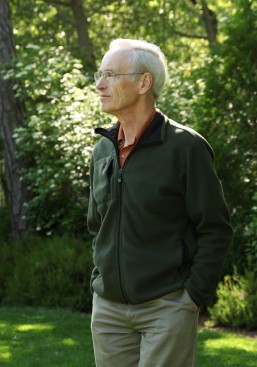Don Cameron is passionate
about helping to address the
overwhelming need for better services
to our veterans and families with PTSD
Background
Don worked for years in computer technology. He frequently felt the urge to be of greater service to people, but all the alternative paths he explored didn’t seem to fit. Then, just when considering retirement from computing, he came across an introductory class in energy medicine.
That weekend class was a game-changer for him. Hooked by the beauty and power of the energy healing process, he took the plunge, phased down his software business, and committed to a two-year program of training and pro-bono healing sessions.
It wasn’t easy! During his computing career, he had developed and depended on his analytical, thinking talents. Now he had to learn a whole new set of intuitive and energy-sensing skills. There aren’t many bigger shifts than that! He felt out of his element and came close to dropping out of the training. However, his heart-felt calling to follow this path enabled him to overcome his initial difficulties, and he graduated with professional certification as an energy medicine practitioner.

Clients with traumas
After opening his own practice, he found he was particularly drawn to help survivors of emotional and physical traumas. He noticed that his practice helped such clients by at least “taking the edge off” of their symptoms: often going from wired to calm, or from depressed to energized. With some clients, the healing effect was more dramatic, resulting in release of long-term blocks and the ability to engage more actively in life.
Collaborating, over a three-year period, with a psychotherapist and substance-abuse counselor, Don found that the benefits of his energy healing enabled their clients to be more responsive in therapy sessions. In effect, the energy healing process could amplify the results of these other services: it was a true “complementary” healing method. Putting this in spiritual or soul terms, his therapist colleague said she felt the clients were “gaining access to their own inner healers”.
Focus on veterans
The next stage in Don’s journey was driven by a growing awareness of the problems faced by veterans: that the VA is unable to satisfy the demand for PTSD services (even before the bulk of the troops come home from Afghanistan); that employers often blacklist the resumes of veterans because they might be disabled by PTSD; and that returning veterans often find themselves homeless.
The more he researched, the more he was appalled by the injustice of it all. He was motivated to help in any way he could.
Realizing that many of his existing clients’ symptoms were similar to some combat PTSD symptoms, Don’s calling to energy healing became more intensely focused: he decided to dedicate his practice to helping veterans with PTSD.
Who does the healing?
One of the things Don loves about his energy-healing practice is that the practitioner doesn’t actually do the healing: the belief is that the practitioner just opens the door to the connection every client has with a power larger than ourselves.
The healing that happens is whatever is appropriate for the client at this point on their path. Consequently, Don approaches every client session with a sense of anticipation, because he is frequently amazed at the outcome.
His responsibility as energy medicine practitioner is twofold: to be totally focused on his intention to facilitate the healing, but to step aside from any expectation about specific results.
Personal
Born in Scotland, then living a monastic existence in a boys-only boarding school, Don suffered much bullying in his early years. Life improved greatly at Cambridge University (there were women there!) and later in his early career in computer hardware and software.
After a mid-life move to the USA, he married, lived in the Boston area, and raised three stepchildren. Then another black period occurred, as his long marriage ended when his wife died after a progressive illness.
The clouds lifted, though, when he met his “new” wife, Mary Jane. Living on Cape Cod, they enjoy outdoor living – boating, exploring, or skiing – when the weather cooperates, and fall back on tennis, theater, and movies when it doesn’t. The nine grandchildren from their combined families love to visit.
